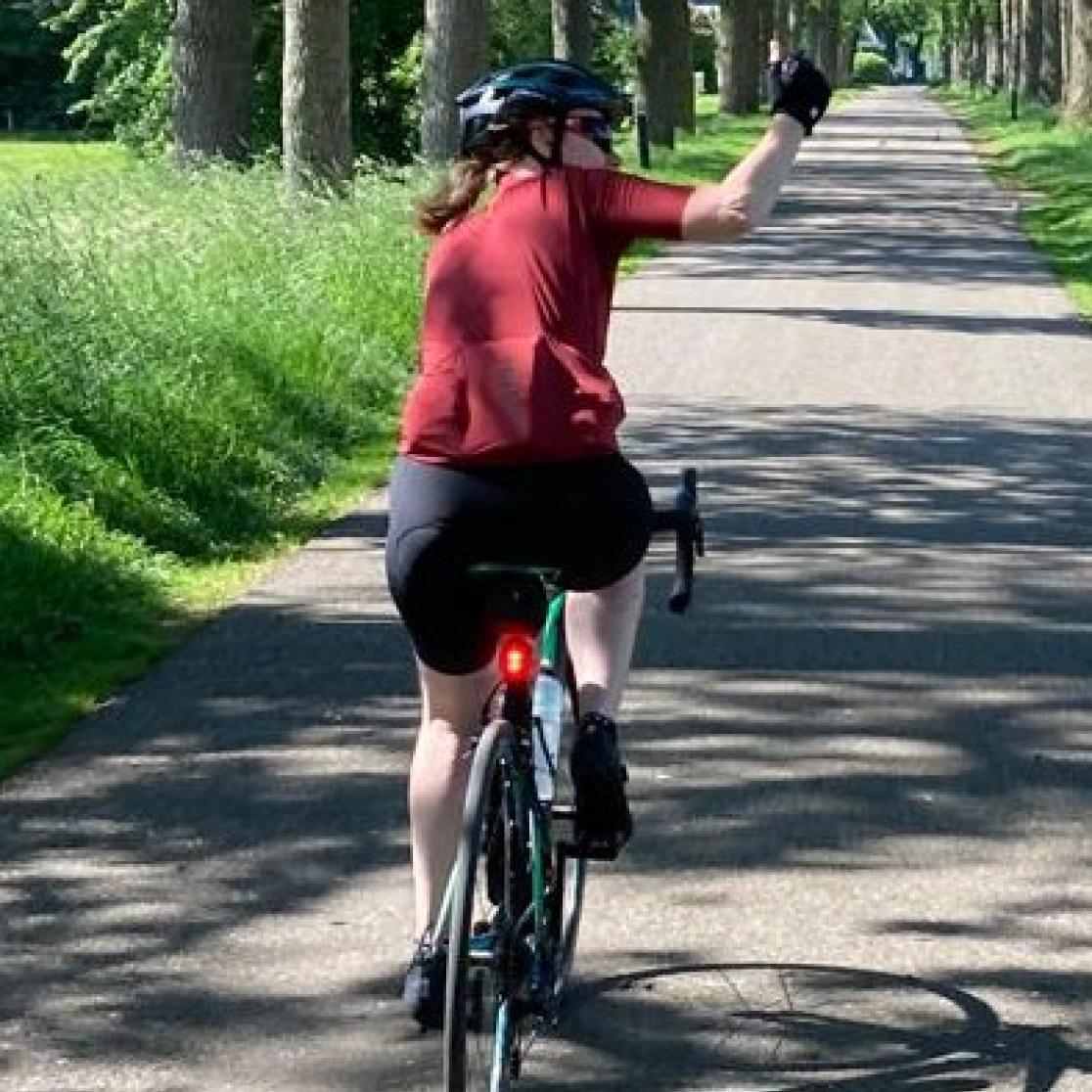Diana Kramp – A contribution to care through knowledge and experience
At the Faculty of Health, Medicine and Life Sciences, staff and students strive to make a difference. For instance, Latifa does research together with citizens and Yara researches sun protection behaviour. In 'Nice to meet you' these individuals introduce themselves and share their work within FHML.
Is improving healthcare only a task for our healthcare and academic staff? At first glance, you would say so. But sometimes there are colleagues within our health faculty who experience care themselves, and feel an urge to contribute to it from a patient perspective. You find this quality in Diana Kramp, management assistant at the Faculty of Health, Medicine and Life Sciences. Diana was diagnosed with breast cancer and underwent a treatment programme at Maastro (MUMC+). Thanks to her job, she knew part of the team providing treatment, which she gladly used to share her experiences afterwards.
Diana has been working for the Faculty Office as a management assistant for several years. Previously, she gained experience in various departments. Diana: ‘I have worked for education and research, and there is something to be said for both. But fun to get to know the different facets of the university. In the departments, I saw a lot of students and PhD students. Now at the Faculty Office, I get to meet teams like Finance, HR and ICT. Nevertheless, I still consider everything to do with education a bit like my baby.’
A pivotal figure between healthcare providers
In 2024, Diana suddenly felt a lump and went for a check-up. The result was a malignant tumour with no metastases. ‘The news came very sudden to me. Fortunately, one surgery and a week of radiotherapy was enough to remove the tumour with some certainty.’ The process started as soon as possible. Diana speaks only positively about the guidance from Maastro and the care team. ‘I went through roughly the same trajectory 30 years ago when I had a benign cyst. That guidance was not pleasant at all. Now I feel that I as a patient am the most important factor in my treatment and that all aspects of life affected by cancer are taken into account.’
Diana could share those experiences with her healthcare colleagues. ‘I obviously see my doctors, their team and the people behind the scenes at MUMC+ within my working environment. This gave a great opportunity to show how I experienced the process as a patient. This interest came from different angles, right up to the Radiation Protection Unit, who were eager to know my experience during radiotherapy.’ Diana also maintains contact with Maastro, partly because she linked them to an organisation that, for example, makes cushions for seatbelts and that make sleeping more comfortable - useful in the postoperative period.
Now I feel that I as a patient am the most important factor in my treatment and that all aspects of life affected by cancer are taken into account.
Cycling beyond your limits
During her treatment, Diana could also count on support from her colleagues and supervisors, so she really felt like she was working for a health faculty. Meanwhile, Diana is in remission and building herself back up physically and mentally. ‘I do that through my biggest hobby; sports. I love running, cycling and rowing immensely. I continued to do that even during my treatment. But I became too fanatical because certain medication made me depressed, so I started doing more and more sports to counter that effect.’ To exercise under supervision, Diana joined the Toon Hermanshuis Parkstad. They offer a programme aimed at patients with cancer called ‘Live Fit’. Diana soon felt she wanted to give something back to the Toon Hermanshuis. As they work mainly with money from sponsorship, she participates in an annual sponsorship activity. And not the least, Diana is going to climb Mont Ventoux. ‘I hesitated at first, but according to the director of Toon Hermanshuis, I need it to close this chapter in my life. And he was right about that.’

Is improving healthcare solely the responsibility of academic staff? Certainly not. People like Diana are essential — individuals who have experienced illness themselves and, afterwards, develop a deep compassion for others in similar situations. Diana has clearly done just that by sharing her experiences as a patient and contributing to the organisations that support cancer patients, from which she herself once benefited.
Would you like to support Diana in her climb of Mont Ventoux for the Toon Hermans House Parkstad and the Dutch Cancer Society (KWF Kankerbestrijding)? Find out here how you can contribute to this special fundraising initiative.
Text: Ruben Beeckman
Also read
-
Mental health services urgently need to address lifestyle
Mental health services need to increase investment in lifestyle interventions to improve care and narrow the 15-year life-expectancy gap for people with mental health conditions, according to a new report by The Lancet Psychiatry Commission. Maastricht University scientist Jeroen Deenik is one of...

-
Study Smart gets Dutch Education Premium
Maastricht University's (UM) interfaculty educational innovation project Study Smart is one of the three winners of the Dutch Education Premium 2025. This was announced on Tuesday during the Comenius festival in The Hague.

-
Most prestigious European grant to two UM scientists
Two Maastricht University professors are to receive the most prestigious European research grant for individual researchers: an ERC Advanced Grant, worth over €2.5 million. They are Lorenzo Moroni (MERLN) and Alexander Sack (FPN).
